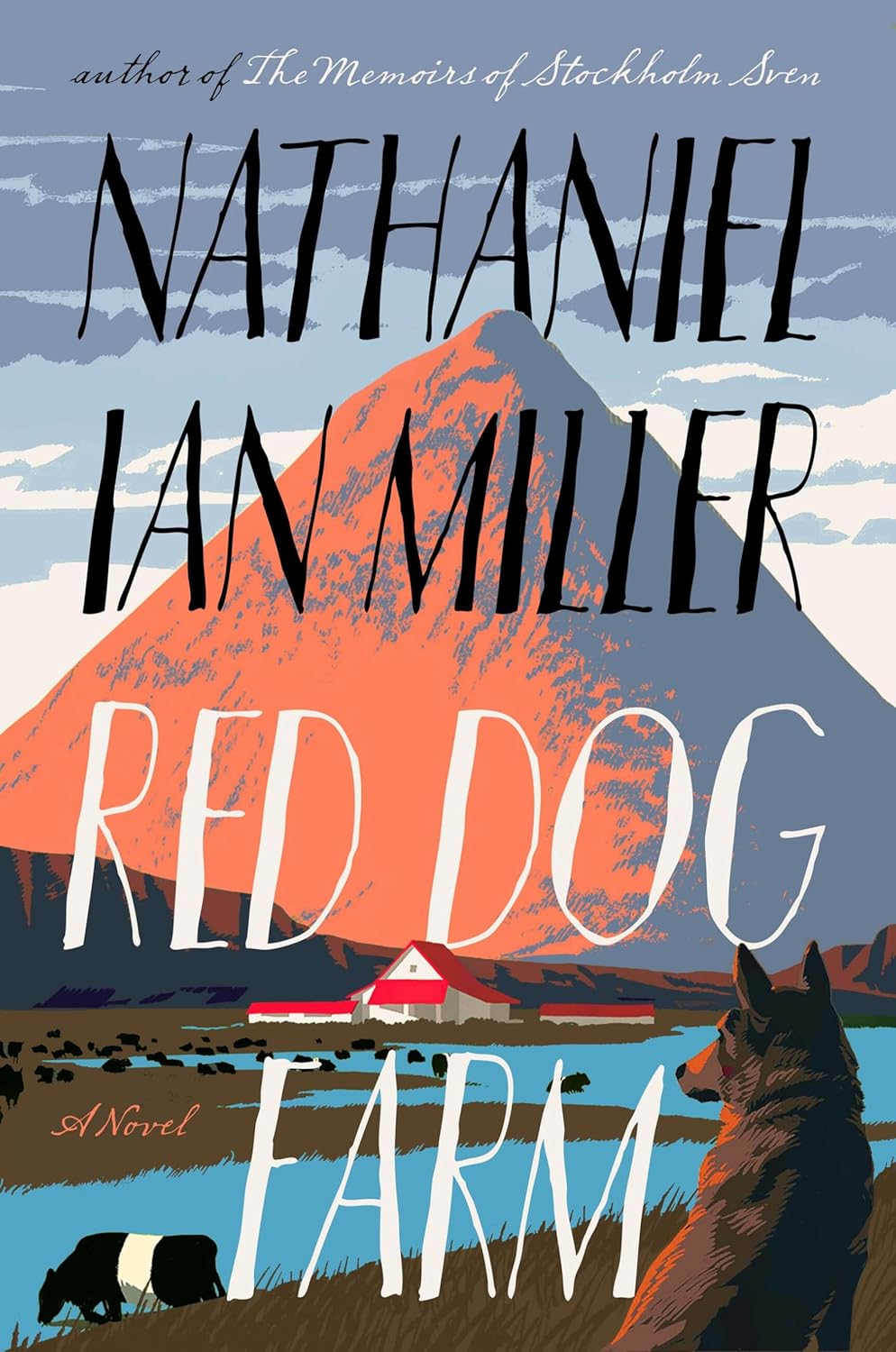Nathaniel Ian Miller
Little, Brown and Company ($28)
by Sara Maurer
Perhaps no author looms larger in Icelandic literature than Halldór Laxness, who won the Nobel Prize in Literature in 1955. In writing a book set on a far-flung Icelandic farm—as is Laxness’s 1934 novel Independent People, widely considered his masterpiece—Nathaniel Ian Miller faces the challenge of situating Red Dog Farm in the context of Iceland’s foremost literary figure’s foremost book. He approaches this task in the same way one of his characters, Víðir, comes “out from under his father’s heavy shadow”—by defining himself in opposition to him.
While the narrator of Red Dog Farm is a young man named Orri, it’s through his father, Víðir, that Miller engages the specter of Laxness. At first, Víðir and the hero of Independent People, Bjartur of Summerhouses, seem of a piece: They’re decidedly cantankerous, both farmers, poets, husbands, and fathers. Defiance and stubbornness seem to guide each man’s every move (Bjartur’s first line of dialogue in Independent People is a solitary “No”). Ostensibly, Laxness’s protagonist is driven by a desire for financial independence—a home, land, and livestock owned outright—yet as his story unfolds, he seems less driven by this ideal than by brutality. He refuses to improve his home or adequately feed and clothe his family, and he seems to value his sheep above human life.
Víðir, too, lives in opposition to the people around him, rejecting his neighbors’ old ways of doing things. He rides a motorcycle instead of a horse, raises beef cows instead of sheep, and has an Australian kelpie instead of an Icelandic sheepdog. Unlike the relentlessly independent Bjartur, though, Víðir relies completely on his wife’s college professor salary and his physician mother-in-law’s generosity. Where Bjartur treats his wife and children little better than livestock, Víðir coddles Orri, demands nothing of him. He loves his wife and “would’ve claimed all her time if he could justify it.” Shortly after she leaves him, Víðir reveals to Orri that he has been writing poetry: “I guess you’d call it free verse? Prose poems? I’m not sure.” You can almost hear Bjartur, who found comfort in “the old measures of the 18th century ballads and had always despised the writing of hymns in newfangled lyrics,” scoffing.
Toward the ends of their books, Bjartur and Víðir find themselves quite alone. As a result of his unrelenting pursuit of self-sufficiency, both of Bjartur’s wives are dead and most of his children have died or fled; only his son Gvendur remains. Víðir’s wife, similarly fed up with his reticence and discontent, has accepted a new position at a university in Reykjavik; Orri remains on the farm but is planning to move to Reykjavik as well. Each faces the question that farmers have faced since humans began farming: What will happen to the farm? It will come as no surprise that the sons choose opposite paths: One takes over his father’s farm while the other leaves both farming and father behind.
Rather than shying away from comparisons to Laxness’s classic, Miller leans into them: “To hell with Bjartur!” Víðir says at one point. Víðir’s rejection of the old ways reveals him as a new symbol for Icelandic masculinity. In casting off Bjartur’s heavy shadow, Miller challenges long-held cultural ideals of independence, perseverance, and stoicism, and offers readers a 21st-century hero—one who relinquishes power and embraces flexibility and tenderness.
Click below to purchase this book through Bookshop and support your local independent bookstore:
Rain Taxi Online Edition Summer 2025 | © Rain Taxi, Inc. 2025

